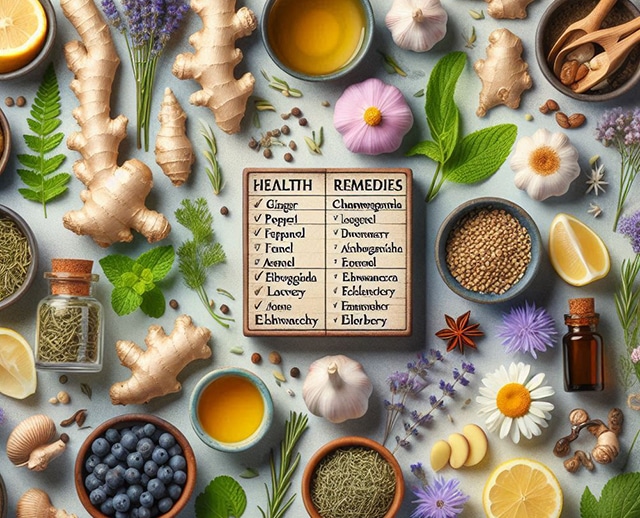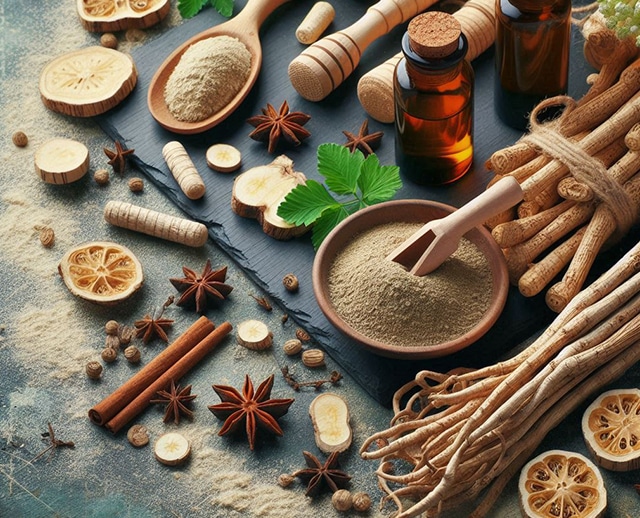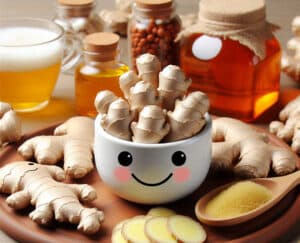Natural Herbal Remedies for Common Health Issues
In our quest for wellness, many people are turning back to nature for answers. Natural Herbal Remedies have been used for centuries across various cultures to treat ailments and promote overall health. From soothing digestive issues to alleviating stress, the right herbs can serve as powerful allies in our health journey. This article explores some of the most effective herbal remedies for common ailments, their benefits, and how to incorporate them into your daily life.
The Healing Power of Herbs
Herbal medicine is rooted in the belief that nature provides us with the necessary tools for healing. Herbs contain various compounds that can influence bodily functions, alleviate symptoms, and enhance overall well-being. Unlike pharmaceutical drugs, which may have adverse side effects, herbal remedies often come with a lower risk profile, making them a popular choice for many.
Key Benefits of Herbal Remedies
- Natural Healing: Herbs offer natural solutions that can help your body heal itself.
- Holistic Approach: Herbal medicine considers the whole person, focusing on the root causes of ailments rather than just treating symptoms.
- Fewer Side Effects: Many herbs have fewer side effects compared to conventional medications, making them safer for long-term use.
- Accessibility: Herbal remedies can often be grown at home or purchased easily, making them accessible to many people.
Common Ailments and Their Herbal Remedies
1. Digestive Issues
Herbs: Ginger, Peppermint, Fennel
- Ginger: Known for its ability to alleviate nausea and support digestion, ginger can be consumed as tea, capsules, or fresh.
- Peppermint: This herb is excellent for soothing stomach cramps and bloating. Peppermint tea is a popular choice.
- Fennel: Fennel seeds can help reduce gas and bloating. Chewing on a teaspoon of fennel seeds after meals can aid digestion.
How to Use:
- Ginger Tea Recipe:
- Grate a 1-inch piece of fresh ginger and steep it in hot water for 10 minutes. Add honey or lemon for flavor.
2. Stress and Anxiety
Herbs: Lavender, Chamomile, Ashwagandha
- Lavender: Renowned for its calming properties, lavender can help reduce anxiety and promote relaxation.
- Chamomile: This gentle herb is perfect for promoting sleep and relieving stress. Chamomile tea is a soothing bedtime ritual.
- Ashwagandha: An adaptogen that helps the body adapt to stress, ashwagandha is often taken in powder form or as capsules.
How to Use:
- Lavender Aromatherapy: Use lavender essential oil in a diffuser or add a few drops to your bath for relaxation.
3. Immune Support
Herbs: Echinacea, Elderberry, Garlic
- Echinacea: Often used to prevent colds and flu, echinacea can enhance immune function.
- Elderberry: Packed with antioxidants, elderberry syrup can reduce the duration of colds and flu.
- Garlic: Known for its antimicrobial properties, garlic can boost the immune system.
How to Use:
- Elderberry Syrup Recipe:
- Simmer 1 cup of dried elderberries with 4 cups of water for 30 minutes. Strain and add honey to taste.
4. Skin Conditions
Herbs: Aloe Vera, Calendula, Tea Tree Oil
- Aloe Vera: Known for its soothing properties, aloe vera gel can be applied to burns, cuts, and sunburn.
- Calendula: This herb is effective for wound healing and can be used in salves or ointments.
- Tea Tree Oil: With its antiseptic properties, tea tree oil can help treat acne and fungal infections.
How to Use:
- Aloe Vera Gel Application: Apply fresh aloe vera gel directly to the affected area for relief.
5. Sleep Disorders
Herbs: Valerian Root, Passionflower, Lemon Balm
- Valerian Root: This herb is known for its sedative properties and can help improve sleep quality.
- Passionflower: Often used for insomnia and anxiety, passionflower can be taken as tea or tincture.
- Lemon Balm: This calming herb can help reduce anxiety and promote sleep.
How to Use:
- Valerian Root Tea Recipe:
- Steep 1 teaspoon of dried valerian root in hot water for 10-15 minutes before bedtime.
6. Pain Relief
Herbs: Turmeric, Ginger, Willow Bark
- Turmeric: Known for its anti-inflammatory properties, turmeric can help relieve joint pain. Curcumin, the active compound, is particularly beneficial.
- Ginger: In addition to aiding digestion, ginger can also reduce muscle pain and soreness.
- Willow Bark: Often referred to as “nature’s aspirin,” willow bark is effective for headaches and other pain.
How to Use:
- Turmeric Latte Recipe:
- Mix 1 teaspoon of turmeric powder with warm milk or a dairy alternative, add honey or spices like cinnamon for flavor.
7. Respiratory Issues
Herbs: Thyme, Licorice Root, Mullein
- Thyme: This herb can help relieve coughs and respiratory infections. Thyme tea is a great way to enjoy its benefits.
- Licorice Root: Known for its soothing properties, licorice root can help with sore throats and respiratory issues.
- Mullein: Mullein leaves can help ease coughs and support lung health.
How to Use:
- Thyme Tea Recipe:
- Steep 1 tablespoon of fresh thyme in boiling water for 10 minutes.
How to Incorporate Herbal Remedies into Your Life
- Start with a Tea:
- Herbal teas are one of the easiest ways to enjoy the benefits of herbs. Choose a few favorites and brew them regularly.
- Create Herbal Infusions:
- Infuse herbs in oil or vinegar to create your own herbal remedies. These can be used in cooking or as topical treatments.
- Experiment with Tinctures:
- Tinctures are concentrated herbal extracts made with alcohol or vinegar. They are potent and can be taken in small doses.
- Grow Your Own Herbs:
- Consider starting a small herb garden at home. Growing your own herbs can provide fresh ingredients for your remedies.
- Educate Yourself:
- Understanding the properties and uses of various herbs will help you make informed decisions. Books, online courses, and local workshops can be great resources.
Precautions and Considerations
While herbal remedies can be effective, it’s essential to approach them with caution:
- Consult with a Healthcare Professional: Before starting any new herbal regimen, especially if you have existing health conditions or are taking medications.
- Know Your Allergies: Be aware of any allergies you may have to specific herbs.
- Quality Matters: Choose high-quality herbs from reputable sources to ensure potency and safety.
- Dosage is Key: Follow recommended dosages, as some herbs can be potent and should not be overused.
Conclusion
Herbal remedies offer a natural, effective way to address common health concerns and promote overall well-being. By harnessing the power of nature, you can find relief from various ailments while enhancing your health. Whether you choose to enjoy herbal teas, tinctures, or infused oils, integrating these remedies into your daily life can lead to a healthier, more balanced lifestyle.
Embrace the wisdom of herbal medicine and explore the world of natural remedies to enhance your health and well-being.
Share this content:















Post Comment